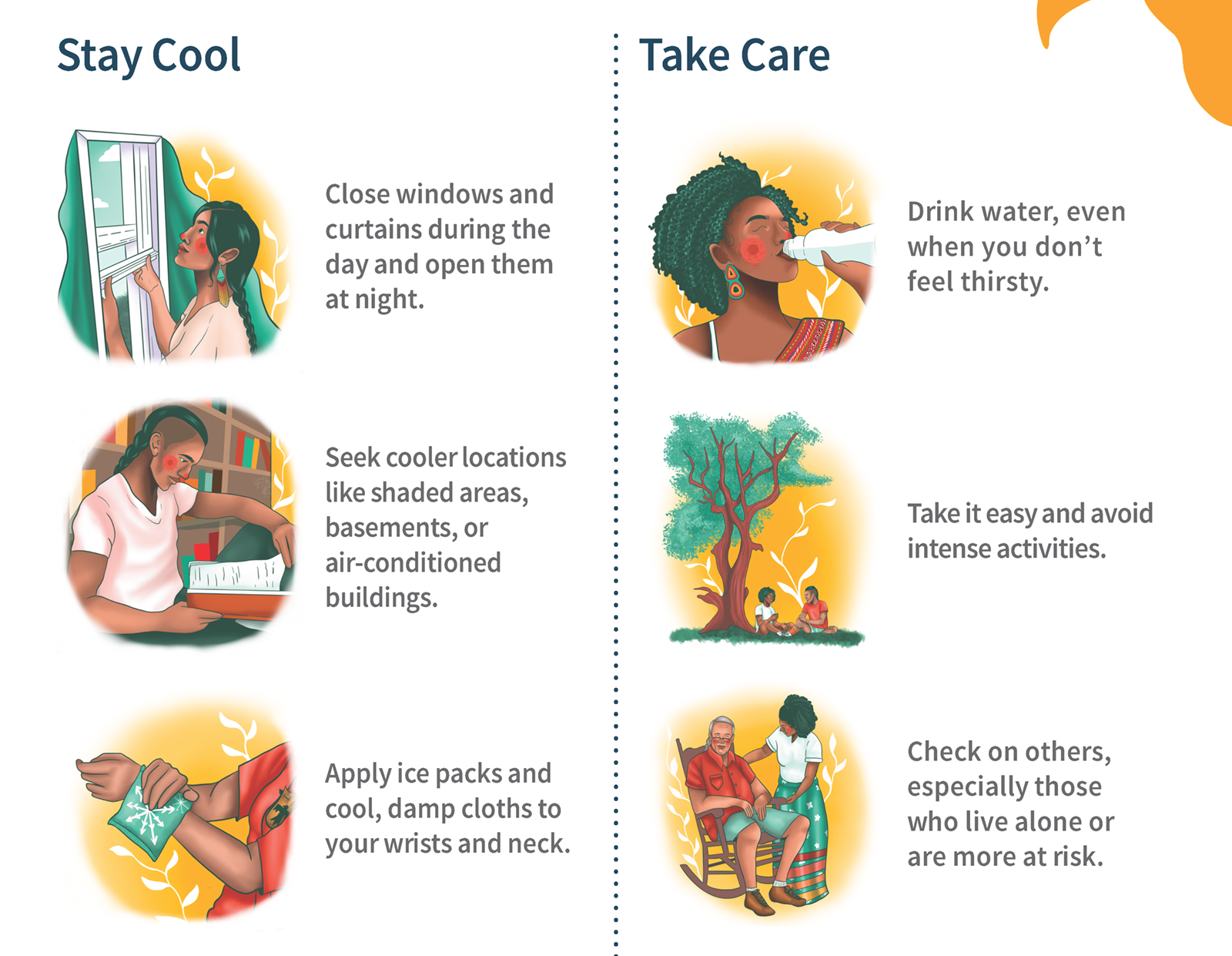British Columbia is experiencing hotter than normal temperatures year by year. Higher than average temperatures can lead to heat and health emergencies. It is critical to prepare and know where to find supports in times of extreme heat.
Extreme heat is where temperatures during the day and night are hotter than seasonal norms. This can contribute to health concerns such as heat exhaustion, heat stroke and impact overall health and wellness.
Extreme Heat Emergencies are defined in the
British Columbia Heat and Alert Systems guide. Specific warning systems and guidelines have been created in collaboration with health officials of government agencies to support local authorities and First Nations in preparedness and response efforts to extreme heat events.
Anyone can experience adverse effects of extreme heat, however those most at risk include people who:
- Live below the poverty line or are of lower socio-economic status
- Live with mental health concerns such as schizophrenia, depression, or anxiety
- Live with pre-existing health conditions, such as diabetes, heart disease or respiratory illness (asthma)
- live with disabilities or have limited mobility
- are unhoused or insecurely housed
- are Elders, who are 65 or older, especially those who are socially or economically isolated
- are infants or young children
- work in enclosed or hot environments with poor ventilation and cooling
- who are pregnant
- live with substance use challenges

What can you do to prepare for extreme heat?
Planning and preparation for emergencies have shown to have better outcomes than responding when heat events occur. Emergency preparedness planning now includes extreme heat events.
- Make an extreme heat preparedness plan
- Check eligibility for a portable air conditioner - BC Hydro offers a free portable air conditioner to income-qualified households.
- Identify an extreme heat buddy who can check on you and reach out to for support
- Be informed, know where the nearest cooling center is and available transportation:
-
Historical Cooling Centre Locations in British Columbia (ClimateReadyBC)
- Sleep in a wet t-shirt or sheet
- Take cool baths or showers to cool your internal temperature down
- If you find that you or somebody you know is becoming overheated, go somewhere cooler immediately. Wooded areas with shade are often several degrees cooler and may provide some relief.
- It is also critical to drink plenty of water during an extreme heat event. As your body sweats you rapidly lose water and electrolytes which contributes to overheating.
What are signs of heat illness?
The symptoms of heat-related illness can range from mild to severe.
If you or anyone you know begin to experience severe symptoms such as, high fever, hallucinations, seizures and unconsciousness – please call 911 and try to cool them down using water and/or moving to a cool place. These symptoms require urgent medical attention and can be life threatening.
For mild to moderate symptoms, you can refer to HealthLinkBC on how to treat symptoms which include:
- Pale, cool, moist skin
- Heavy sweating
- Muscle cramps
- Rash
- Swelling, especially hands and feet
- Fatigue and weakness
- Light headedness and/or fainting
- Headache
- Nausea and/or vomiting
You can also use HealthLinkBC to check your symptoms.
Resources
These resources were created in collaboration between the FNHA, Métis Nation BC, CleanBC, the BC Centre for Disease Control, and the BC Association of Aboriginal Friendship Centres. Communities and organizations serving Indigenous clients can print or share them in their newsletters.
Regional Health Authorities:
Partners

